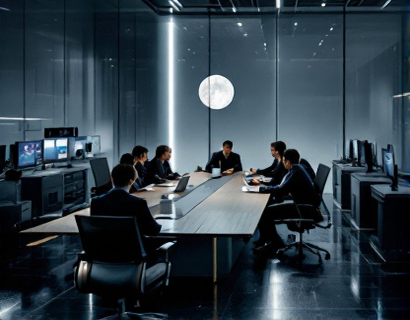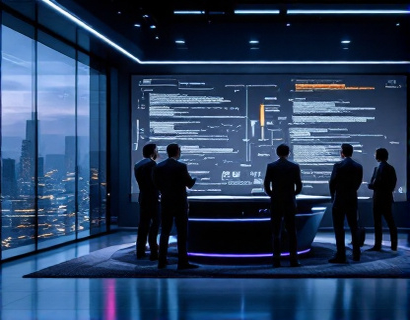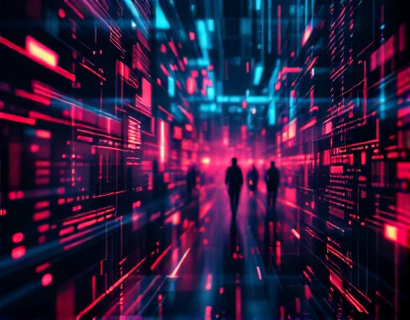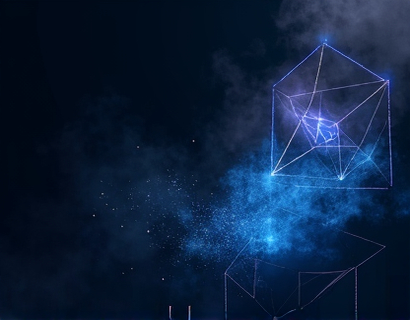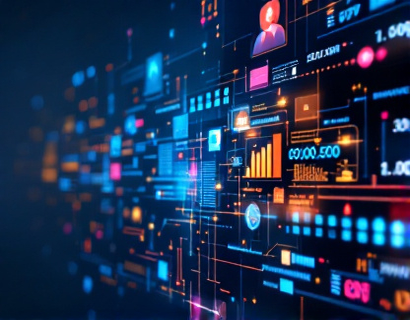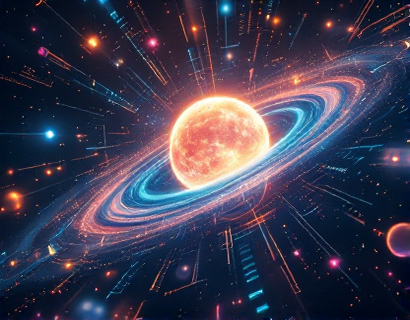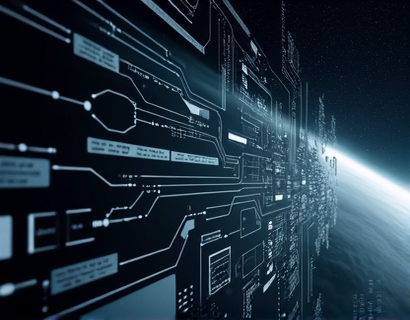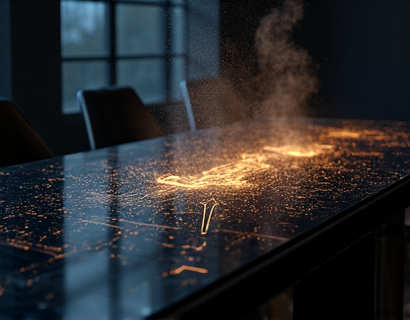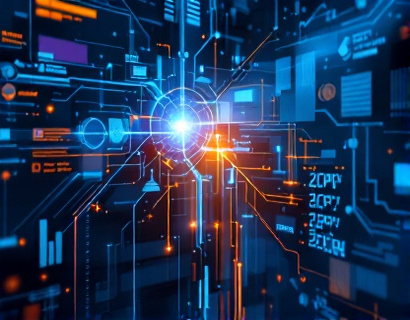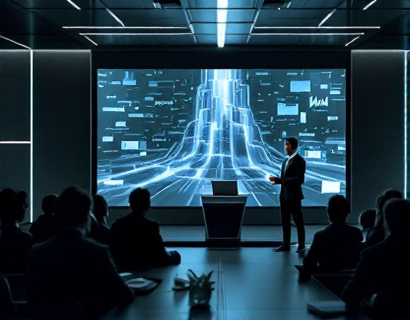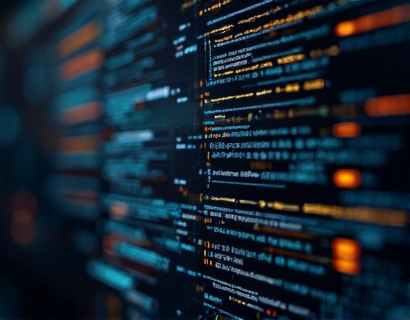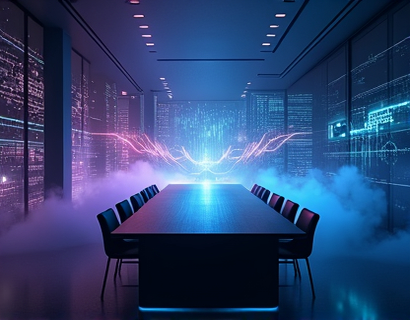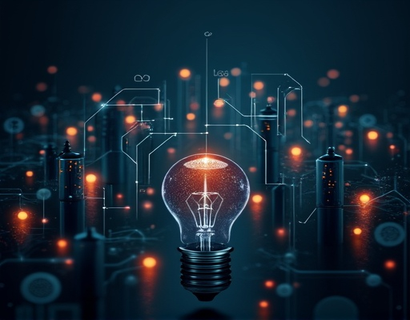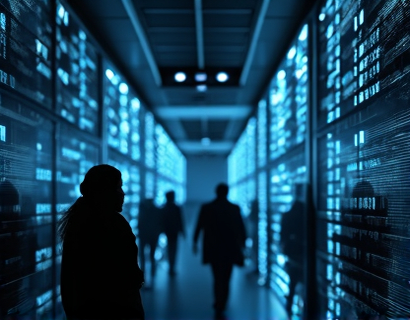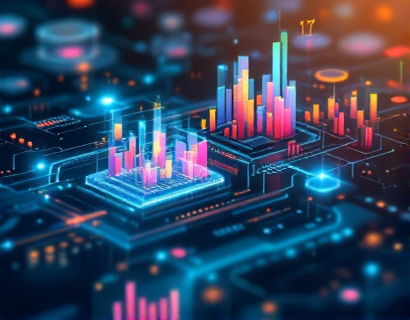Unlocking the Future: Leveraging AI and Crypto for Next-Gen Ucosystem Solutions
The intersection of artificial intelligence and cryptocurrency is giving birth to a new era of technological advancements, redefining how we interact with digital systems and experiences. This fusion, often referred to as techfusion, is creating innovative applications that are transforming the way we approach data, security, and user engagement. As we delve into this transformative space, it's essential to understand the key components and potential of this emerging field.
The concept of a ucosystem, a term that merges "utopia" and "ecosystem," refers to a future-oriented digital environment where technology, particularly AI and blockchain, converges to create a seamless, efficient, and user-centric experience. In this context, AI plays a pivotal role in enhancing the functionality and accessibility of blockchain-based applications, while cryptocurrency provides the necessary infrastructure for secure and decentralized transactions.
One of the primary advantages of integrating AI with blockchain technology is the enhancement of data processing and analysis. AI algorithms can sift through vast amounts of data stored on the blockchain, identifying patterns, predicting trends, and providing actionable insights. This capability is particularly valuable in sectors such as finance, healthcare, and supply chain management, where real-time data analysis can lead to significant improvements in efficiency and decision-making.
For instance, in the financial sector, AI-driven analytics can help detect fraudulent transactions with higher accuracy and speed. By analyzing transaction patterns and user behavior, AI can flag suspicious activities in real-time, reducing the risk of financial crimes. This not only enhances security but also builds trust among users, a critical factor in the adoption of blockchain technologies.
Moreover, AI can optimize the performance of smart contracts, the self-executing contracts with the terms directly written into code. AI algorithms can monitor and adjust the parameters of smart contracts based on real-time data, ensuring that they operate efficiently and adapt to changing conditions. This dynamic adjustment capability can significantly reduce the need for manual interventions and minimize the risk of errors.
Another area where AI and blockchain intersect is in the realm of identity verification and management. Traditional identity systems are often centralized, vulnerable to breaches, and prone to misuse. By leveraging blockchain for decentralized identity storage and AI for advanced authentication mechanisms, a more secure and user-friendly identity management system can be created. Users can have full control over their personal data, sharing it selectively and securely with different services as needed.
The combination of AI and blockchain also opens up new possibilities in the field of decentralized applications (dApps). AI can enhance the user experience of dApps by providing personalized recommendations, predictive analytics, and intelligent interfaces. For example, a decentralized social media platform could use AI to curate content based on user preferences and engagement patterns, creating a more tailored and engaging experience.
In the healthcare sector, the synergy between AI and blockchain can lead to groundbreaking advancements. Patient data can be securely stored on the blockchain, ensuring privacy and integrity. AI can then analyze this data to identify health trends, predict disease outbreaks, and personalize treatment plans. This not only improves patient outcomes but also streamlines healthcare operations and reduces costs.
Supply chain management is another sector that stands to benefit greatly from the integration of AI and blockchain. By using blockchain to create an immutable and transparent record of every step in the supply chain, AI can analyze this data to optimize logistics, reduce delays, and ensure product authenticity. This level of transparency and efficiency can significantly enhance trust among stakeholders and improve overall supply chain performance.
However, the potential of AI and blockchain in creating next-gen ucosystem solutions is not without challenges. One of the primary concerns is scalability. Current blockchain technologies often struggle with high transaction speeds and large data volumes, which can limit the practical application of AI-driven solutions. Researchers and developers are actively working on improving blockchain scalability through techniques such as sharding, layer 2 solutions, and more efficient consensus mechanisms.
Another challenge is the regulatory landscape. The rapid evolution of AI and blockchain technologies often outpaces existing regulations, leading to uncertainty and compliance issues. As these technologies mature, it will be crucial for policymakers to create frameworks that foster innovation while ensuring consumer protection and ethical standards.
Interoperability is another key issue. For the full potential of AI and blockchain to be realized, different systems and platforms need to work seamlessly together. This requires standardization and collaboration among various stakeholders in the tech industry. Initiatives such as cross-chain protocols and universal data formats are essential steps towards achieving a more interconnected and cohesive tech ecosystem.
Despite these challenges, the future looks promising. The ongoing advancements in AI and blockchain are paving the way for a new generation of ucosystem solutions that are more intelligent, secure, and user-friendly. As more tech-savvy innovators and early adopters explore this space, we can expect to see a proliferation of cutting-edge applications that redefine digital interactions and experiences.
In conclusion, the fusion of AI and cryptocurrency is not just a technological trend but a transformative force that is reshaping the digital landscape. By leveraging the strengths of both technologies, we can create more efficient, secure, and personalized ucosystem solutions. As we continue to push the boundaries of what's possible, the future of technology holds immense potential for innovation and growth.



